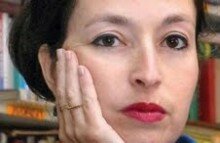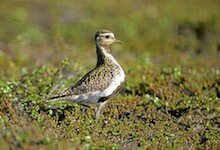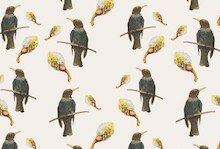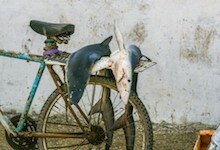
Ayana Erdal was born (prematurely) in Copenhagen where her Israeli parents were studying. Her mother, whose parents were Polish, had immigrated to Israel from Paraguay, and her father from Istanbul; from these diverse backgrounds she grew up in Jerusalem with a listening comprehension of Spanish and German.
The winner of the 2005 Israeli President’s Prize in Literature, Erdal studied comparative literature at Hebrew University, and teaches at the Max Rayne Hand in Hand Bilingual (Arabic-Hebrew) junior-senior high school in Jerusalem. She has held many other jobs, about which she speaks here.
Maariv poetry critic Ron Yagil sums up the distinctive elements in Ayana Erdal's work as the joy and hurt involved in family and other human loves, and her awareness of and distance from the canonical approach to motherhood in Hebrew poetry. Yagil notes about Erdal's second book, Shirei ahava leyamim raim (Love Poems for Hard Times) that it goes “even further than her earlier Sandalei hadam sheli (My Blood Sandals) in cutting you to the quick by burrowing into the poet’s open wounds. Two sad and one joyous occasion lie at the heart of the poems.
“First the joy: the birth of a child. The sad events are the death of her mother and separation from her husband, meaning to say the loss of partnership.
“Here is an example:
Abandoned dishes pile up in the sink,
and lines of ants wake up to resume their march across the floors
and the distance between my son laying his head on the table and my hand
is like a slice of bread.
Bless him with the blessing of the fathers,
bless him with the blessing of men
that I cannot give him.
But heap his life with the kisses of birds,
the love of morning, a bracelet on his arm
and may my son flow over the years
like sugar syrup.
“It’s a tear-jerker of a poem.
“Erdal also uses poetic license in omitting titles for her poems. They have only a dot above them. This gives the poems a diary-like feel and an intimate space of reading. But Erdal is not only a lyrical poet writing about her life. She also corresponds with the literary canon.
"For example: ‘My mother of blessed memory was no saint, but knew how to enjoy life/ and when we were children she would walk around naked/ until the hateful neighbours peeked through the windows’. The poem’s opening lines evoke Bialik’s poem ‘My mother of blessed memory was a saint / and as a widow she was a poor pauper’. How far is Erdal’s mother from Bialik’s? Very far.”
But it seems to me that Erdal weaves the detritus of modern life into her heartfelt work with a sadness that is close to and not distant at all from Bialik's mother. Her third book will no doubt set us straight.
BIBLIOGRAPHY
POETRY
In Hebrew
My Blood Sandals (Sandalei hadam sheli ), Keter, Jerusalem, 2002
Love Poems for Hard Times (Shirei ahava leyamim raim), Am Oved, Tel Aviv, 2008
LINKS
In English
A short story: ‘On Love’s Misunderstandings’
In Hebrew
Video: ‘The effort to live a normal life is greater than life itself’
Video: The poet discusses her life in her work (part of the “Writers Reading” series)
Video: ‘If I had fallen in love with you’
Audio: Art & Motherhood. Three Israeli poets speak
Sponsored by POETRY PLACE







